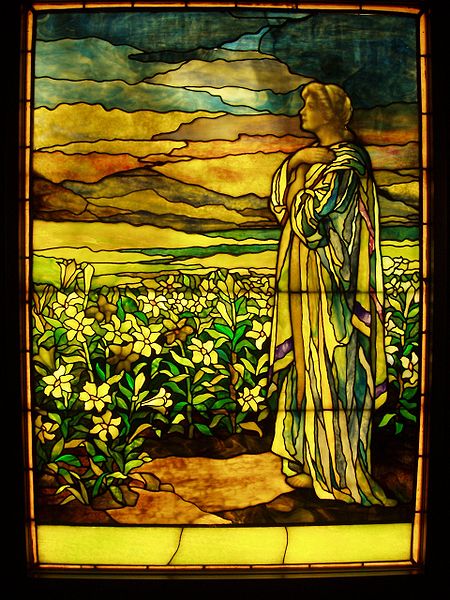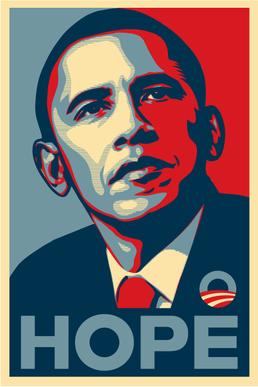I’ve been in the room when clients reach a tipping point. It is an honor. It is a moment when so much good work has been done it overwhelms their previous way of life. New beliefs and possibilities crowd out their previous view of themselves. They say, with some surprise, “I actually woke up the other day feeling good about myself. I think people call it joy.”
The self-defeating personality
Recently, some “masochistically-organized” clients started to tip. Let me create a composite of my experience with such dear people to let their stories inform what I’m trying to say. The people to whom I am refer are not “actual” in a personal way.
The two I am picturing are both “self-defeating” in their personality style, so we often talk about core beliefs having a “sticky” quality. Something like a less-than-permeable lining taints whatever is coming into their thoughts and feelings. One of them described it like the burned-on gunk on the bottom of their ceramic skillet corroding their inner life. When they were young they were told they were no good and were severely punished for it. Another was left alone in a world where they were foreign and got the impression they were shameful. There is a lot more to their stories than that, of course.
You may have heard the term “masochistic” used to describe someone who derives pleasure, sometimes sexual, from being hurt. That is an extreme version of a common personality style. The disorder has been removed from the DSM, but clinicians have been revisiting it lately because clients keep showing up with the general characteristics. A person with this self-defeating personality style probably started out with painful family relationships. They began to avoid successful or pleasurable situations because such circumstances did not fit in with their view of themselves as bad.
They may try to please others at the expense of caring for themselves because they still want to be seen and affirmed and taking care of others seems like the only way to get there. Their identity ends up based on caring for others, often people who are difficult to care for. At the same time, they are often isolated and do not seek help for themselves because they feel like they are flawed and are ashamed to be seen. They self-sabotage – most hopes. Any positive narrative, any optimistic action faces a strong interior argument against it. They probably long for a different kind of life but have a terrible time taking action and often take up addiction as a way out of the problem.
The round-about way to health
In the process of unlearning these negative core beliefs about themselves we’ve scoured the goo off the skillet bottom, so to speak, and let the original creation be seen and cared for. It took a while; it was burned on. And it seemed like fruitless work to begin with, since “I am just a pan bottom” and “it is my own fault I let myself get so messed up.”
For these and many other clients, their journey to better mental health did not follow a straight path. The meandering process of self-discovery and making new choices is very frustrating for many of us because we have adopted a metaphor for our minds that is inadequate for describing what is really going on in us. Metaphors matter.
Zachary Stein has spent a decade trying to change the metaphors we use to describe ourselves from mechanical to organic — that seems like an obvious choice since we are organisms and not machines. But you are probably comfortable describing yourself as “not firing on all cylinders” or “not computing” something. In a nice article, Stein gives a history of why we think like we do.
Scientific models of the human mind have evolved through a series of metaphors. Sigmund Freud used several metaphors to describe the mind, but the one with the most explanatory power was the metaphor of the steam engine. “Psychic energy” was understood as if it were steam compressed within a chamber. Bottle up too much energy and tension, and it will eventually explode elsewhere as a neurotic symptom that you cannot understand. Sex, of course, was the great pressure valve for Freud, a necessary way to release potentially dangerous buildups of energy. The dynamic workings of the mind, which Freud used to explain psychopathology, were all metaphorically related to the basic mechanisms that drove the machines that propelled the Industrial Revolution.
This view fell out of favor in the 1960s when cybernetics came on the scene, and soon computers replaced steam engines as the dominant metaphor for the mind. By the 1980s, the metaphor of the “mind-as-computer” was fully embraced by the emerging field of cognitive science, and it continues to dominate thinking today. By now it has even seeped into the popular culture and become a part of our everyday school vernacular. According to this metaphor, the brain is hardware and the mind is software. The mind is fundamentally about “information processing,” and our individual information processing units vary only in terms of their speed and memory capacities. Smart students have a lot of RAM and fast download speeds. Students who are struggling just “don’t have the bandwidth.” If students follow the right programs and sub-routines, they will encode the right information, which will be stored in memory and made available for retrieval later.
My clients, including the two composites I am thinking of, often feel like they are flawed and need “re-programmed.” Since I can’t effect that, they are often frustrated with me, too! Unfortunately (I guess), they are not computers. They are organisms and are much more variable and subject to their environments and history than a machine.
You are an organism, not a machine
Just as they are, my clients are much more beautiful than a machine. I often point that out, which does not always go over well, since they think they are worthless unless they have utility to someone else. If they ever do anything wrong (and who doesn’t?) or experience some setback (and who won’t?) their lack of value is reinforced. They assume they are about to be thrown out for a better model. They either double down on some guilt-ridden good-deed-doing or double down on avoiding their fruitless search for love. My admiration of them for who they are right now does not compute. Their metaphor won’t allow it.
Dr. Stein reinforces what my faith taught me as a child. We are organisms in the ecosystem called humanity. What’s more, the various elements that make us who we are individually form the psycho/spiritual ecosystem of our personal humanity. Jesus called us a system of heart, soul, mind and strength. Paul’s metaphor for life in the Spirit pictured us as members of Christ’s body, each an honored part. Our right/left brain, brain/mind/body reality is a flexible, moving, adaptable reality.
Stein refers to the great Swiss psychologist and epistemologist Jean Piaget to get some back up for insisting on an organic metaphor to describe us.
Piaget argued that the mind is best understood as an evolving organism — living, growing, and self-regulating in a metabolic relationship to its environment….
According to this view, the mind is best understood as a complex and dynamic system, always in process, always changing, growing, and becoming more diverse and differentiated. At the same time that they grow in internal complexity, ecosystems also become more integrated and specialized, filling up their niches and fostering symbioses. Ecosystems are composed of a wide variety of independent and yet co-evolving species, so there is not one central “unit” that can serve as an overall measure of the ecosystem. Rather, to understand an ecosystem, you must take multiple measurements in a variety of places across a variety of time scales. Ecosystems are also sensitive and actively responsive to the larger environments in which they are nested. They can be easily disrupted and thrown off balance, but they are also generative and creative, self-regulating, and self-transcending. They are adaptable, open systems, and are constantly in a state of dynamic equilibrium. As ecosystems evolve, they display nonlinear growth, with jumps, dips, regressions, and daily and seasonal changes and rhythms. Their growth is not simple and linear, but messy and dynamic. And no two ecosystems are the same. Every ecosystem is unique. Give two ecosystems the same input and you should not expect the same output.

Your personal ecosystem can change, too
These days our sense of being a part of an ecosystem is more apparent than ever since we are increasingly aware of how creation’s climate is changing. We are afraid of a negative tipping point that might occur any day. Scientists seem to know what humanity needs to do to reverse the impact of what we unwittingly did.
You may have already applied that last thought to yourself. I think we all know if we apply new behaviors and avail ourselves of new knowledge, our psychological ecosystem will change. It might not be easy if the previous habits of our hearts are burned on. Or to be more ecological, it might not be easy if an invasive weed has taken over the backyard of the new psychological house we are building (God help you if it is bamboo) and we need to dig for a while to get it unearthed.
I’ve had clients who were not only masochistically-oriented, they were computer programmers! I know of such a composite person who had filled up their life with a lot of positive action: anti-porn worksheets, meds from a psychiatrist, care from social workers, self-help books, and psychotherapists. I often wondered out loud how they could avoid going over a tipping point — a psychological application of Malcom Gladwell’s first book. They saw their searching as a series of examples of how nothing ever worked out for them and how they were a shameful failure, doomed to go the wrong way.
Yet they fitfully persisted. Until one day they came in and said, “I feel different. I remembered myself thinking a negative way and realized it was a memory, not a present reality.” They had gone over the edge. In their case, one of the central features that pushed them over was returning to the church. They went back to the one place they knew they were loved for who they are. Thank God they did not encounter a priest who reinforced their sense of being a terrible human being! In God’s ecosystem of love, the various positive elements began to cohere and a new environment was made.
One of the reasons I love the difficult work of psychotherapy is how realistic it is. It doesn’t work like an internal combustion engine or a computer. It is much more like the Earth, subject to the weather, to dry seasons and wet, and subject to constant surprise and endless change. But in our process, we can also be sure the sun will come up on time every day.
From my window, I look out over the huge expanse of trees in Fairmount Park; the sun is setting right now. That view makes it easier to also see my clients reaching out like the limbs of trees finding the light. The other day, when the Circle Counseling therapists met, I had to say how honored I felt to be in the room to see it dawn on them.
*********************
Today is Cyprian of Carthage Day! He was a leader facing the persecution of the church, disunity, and a pandemic! He was a prolific writer, so he offers us insight into his faith and the life of the Church in the 200’s. Honor his life at The Transhistorical Body.







/s3.amazonaws.com/arc-wordpress-client-uploads/tbt/wp-content/uploads/2018/08/01110852/img_1351.jpg?resize=604%2C386&ssl=1)





 Long before we know Jesus, we have had experiences of being swept up in the flow of God’s good purpose. This “quality of aliveness” was called “righteousness” in the Old Testament, as in Psalm 23: “He restores my soul; he guides me in the paths of righteousness.” Unlike how many people read that couplet, the psalmist did not mean we should stay within the lines of a moral template so we will succeed at building an ideal replica of God’s kingdom and be justified by it. The poet was reminding us we live in a Spirit-charged “force field” (as we might picture it), a force field in which everything we do must move in order to come to fruit. The inner and outer need to sync up: our souls are restored and our feet are guided; as Jesus says, we become good trees that bear good fruit; as Psalm 1 says, we are good trees planted by flowing streams of righteousness.
Long before we know Jesus, we have had experiences of being swept up in the flow of God’s good purpose. This “quality of aliveness” was called “righteousness” in the Old Testament, as in Psalm 23: “He restores my soul; he guides me in the paths of righteousness.” Unlike how many people read that couplet, the psalmist did not mean we should stay within the lines of a moral template so we will succeed at building an ideal replica of God’s kingdom and be justified by it. The poet was reminding us we live in a Spirit-charged “force field” (as we might picture it), a force field in which everything we do must move in order to come to fruit. The inner and outer need to sync up: our souls are restored and our feet are guided; as Jesus says, we become good trees that bear good fruit; as Psalm 1 says, we are good trees planted by flowing streams of righteousness.



